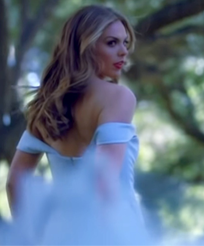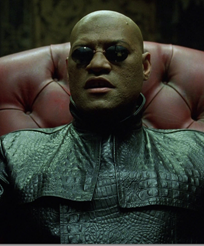If you haven’t seen Greta Gerwig’s directorial debut Lady Bird yet, you’ve at least been made aware of the hype surrounding it. Also you should see it. It’s good. Most people think it’s good. It had a perfect score on Rotten Tomatoes. 100%. Total and complete acclaim. But "had" is the key word there. Over the weekend a man named Cole Smithey decided the film was bad and voted it “rotten.” Everyone is allowed their own opinion but I couldn’t help but be curious as to the reasoning behind the one negative review out of the 200 aggregated by Rotten Tomatoes. What about the coming of age film turned off Cole Smithey that enchanted the other 199 critics? Let’s see.
Smithey’s first jab comes at the end of his second paragraph where he casually interjects that Tracy Lett’s performance as Lady Bird’s dad was a “thankless role.” If he meant that the character itself was thankless, that is perhaps true but I’d argue that serves to the grander narrative of this being a movie about the relationship between a teen girl and her mother. I'm sure it sucked not having the character most similar to you be the focus of attention for an hour and a half. I can't imagine what on earth that would possibly feel like.
The criticisms only get increasingly bizarre to the point where it feels like Smithey simply wanted the film to be something entirely different. While anyone is entitled to call Sacramento an “armpit city” (I have similar feelings re: Boston) to write that without realizing the entire point of setting it there is that one’s nostalgia for their hometown promotes a beauty unrecognizable to outsiders. Gerwig explained this exact sentiment in an interview. "I wanted to make a love letter to Sacramento as seen through the eyes of someone who can’t appreciate how beautiful it is until she’s going away to someplace else.”
Smithey unsympathetically describes Lucas Hedges’s closeted teenage character, Danny, as “a boy with a secret” and claims Lady Bird is a bad judge of sexual affiliation. First of all, likening being closeted to having “a secret” is basic AF, and second of all, Lady Bird’s oversight of his sexuality is the experience of approximately every single high school girl who did musical theater. Congratulations to Cole Smithey—if that is his real name—for never in his life being blinded by infatuation.
It isn’t often teen girls get coming of age stories told on the screen. In the past year, two of the most popular coming of age narratives, It and Stranger Things were centered around groups of boys. The girls in both stories were tainted by a traumatic past that allowed the boys to save them. To have a protagonist who is a young woman whose childhood wasn’t riddled with sexual assault (or abduction by evil scientists) feels very refreshing. So when this critic compares Lady Bird to two coming of age stories about young boys—Kes and Murmur Of The Heart—films that came out in 1970 and 1971 respectively (reference your film school degree much, Smithey?), it becomes painfully clear this guy went in an agenda that would make it impossible for him to relate to a young girl trying to frantically lose her virginity. I also can't imagine there's anyway he'd truly appreciate how exciting it is to find a dress at a thrift store and have your mother pay for it. Insane he managed to not pick apart that magical moment either.
The most frustrating critique he made, that once again made me question what he thought this movie was going to be, was when he wrote “If Lady Bird were true to her character, she'd never speak to her mother again” after a big fight they have before she leaves for college. The entire point of coming of age stories is pushing boundaries, questioning authorities, and exploring just what your character is. Throughout the whole movie we see her trying on different personas. It’s absurd to expect an 18-year-old girl, even one as stubborn as Lady Bird, be true to her character. Again, how could someone who just lost her virginity to a guy who tries "to live by the barter system alone" and brought up the Iraq war post coitus fully know what her own character even is. That's an unrealistic expectation to have for her.
People are free to their negative opinions about this or any movie, but reading this review feels less like Smithey disliked the movie and more like he's working out a fundamental misunderstanding of what being a teenage girl is like. A shortcoming that seems about right, but one which requires some self-awareness. God knows we have too many old dudes spending too much time with young teenage girls these days, but Smithey refuses to be taught anything about early 2000s teenage-dom in Sacramento by this movie and it shows. Perhaps we can lobby Rotten Tomatoes for a function that filters out the reviews of 54-year-old men whose websites declare them “the smartest film critic in the world" from reviewing movies about teenage girls.













